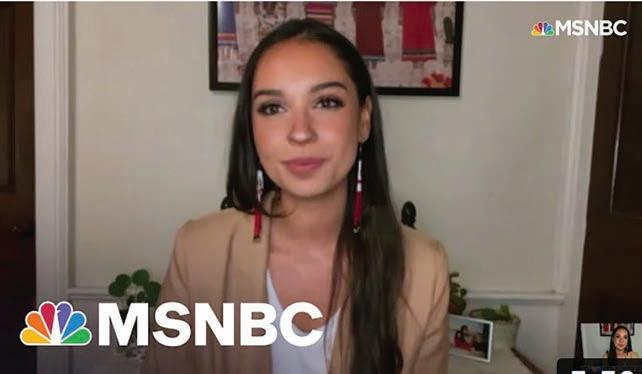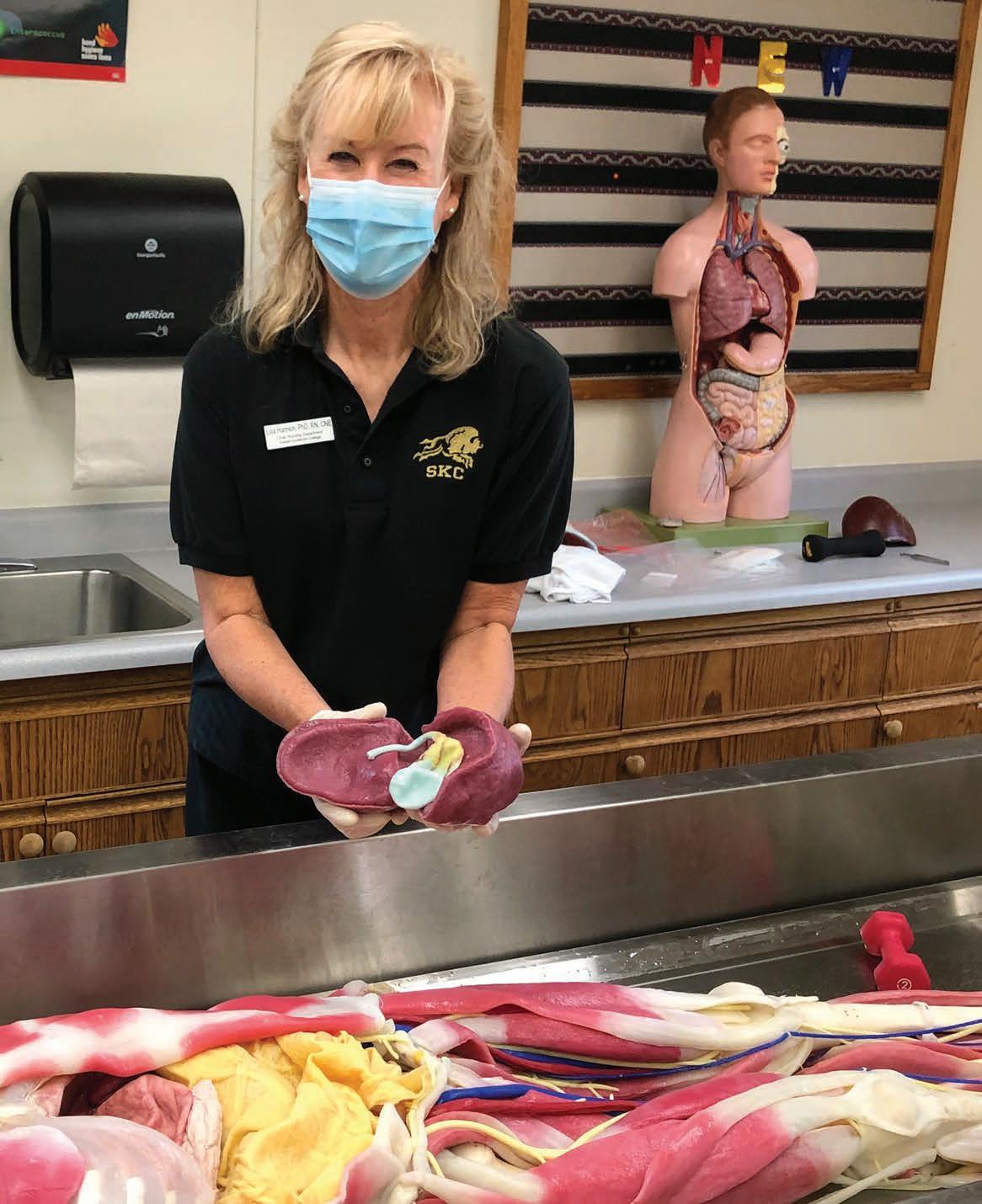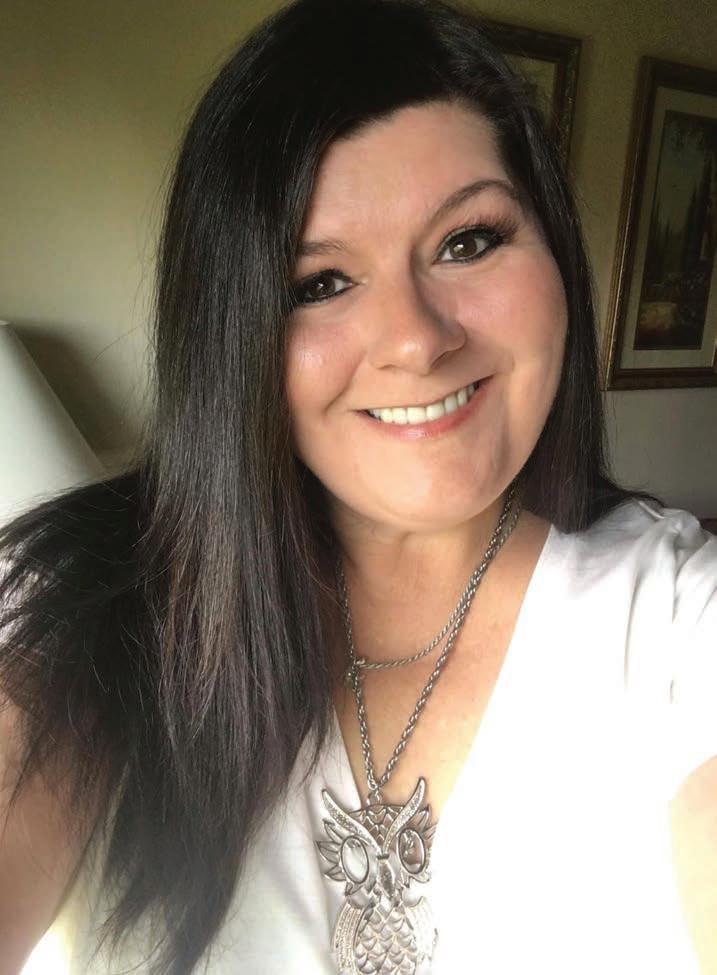
6 minute read
Student Ambassadors: The Next Generation of Leaders . . . . . . . . . . . . . . . . . . . . . . . . . . . . . . . . 13
Samantha–2021 Cohort
Samantha (Wampanoag Tribe of Gay Head/Aquinnah), a descendant of a long line of Native women leaders, was awarded the secondever American Indian Law School Scholarship to attend Harvard Law School. She joined the incoming class of 2021. The scholarship covers tuition and all costs of attendance for the three-year course of study, and is open to American Indian or Alaska Natives who are enrolled tribal members or lineal descendants of enrolled parents or grandparents. Samantha is a former American Indian College Fund Full Circle Scholar who graduated in 2018 from Dartmouth College. Her winning essay for the scholarship detailed Harvard University and its relationship with her tribal nation. “Harvard’s past is tied to my community, but I hope to weave our futures together as well.” Harvard University was established in 1636 in part for the “education of Indian youth.” The first Native graduate was a member of the Wampanoag Tribal community, yet centuries later, no Wampanoag person has graduated from the law school. In addition, Harvard Law School did not open its doors to women until 1950 .
Samantha’s mother, Cheryl Andrews-Maltais, is the Tribal Chairwoman of the Wampanoag Tribe of Gay Head/Aquinnah. Samantha’s mother and her father, Daniel Maltais, raised her in Wampanoag culture and traditions. A member of the Wolf Clan, Samantha said the matriarchs in her family have fought for the rights of her tribal people since contact, yet added, “None before me had the opportunity to fight with a legal education behind them. For generations, they were forced to rely on strangers to debate our past, present, and futures in the courtroom— strangers who held our sovereignty in their hands, knowing it means nothing to them but the world to us.” With the financial support of the College Fund and a Harvard Law degree, Samantha hopes to hold the school to its charter and to uplift Native people who continue to fight in court to protect their rights and lands. “A law degree from Harvard will mean more than just what I can achieve myself. It will mean helping design a future where tribal youth can imagine themselves at the university’s law school… a future where Native women and girls can see that they belong side by side with some of the nation’s brightest legal minds. It means a step towards healing for my community and inspiring generations to follow,” she said. Samantha jumped into helping the College Fund create public awareness about the scholarship and Native access to higher education. She was interviewed by the Boston Globe and the Associated Press and appeared on “The Last Word with Lawrence O’Donnell Show” on MSNBC.
Publicity helps Native students learn about education opportunities and see Native role models. It also creates greater visibility for Native people and the College Fund. Samantha said she sees her public awareness work as part of her role to “hold the door open” for Native students aspiring to go to college and to achieve their dreams.

Samantha discussed her scholarship and its importance to her and Native people on MSNBC's "The Last Word with Lawrence O'Donnell" program.
Salish Kootenai College Becomes First Tribal College Offering Four-Year Registered Nursing Degree
Registered nurses (RNs) are in high demand, particularly in Native communities, which often have shortages of medical facilities and health-care personnel. Registered nurses also serve as the first line of care for chronically ill patients, which is particularly important because Native people suffer from chronic diseases at higher rates than non-Natives.
In 2020-21, Salish Kootenai College (SKC) became the first tribal college to offer a four-year registered nursing degree program. It welcomed its first student cohort last fall, kicking off The World Health Organization’s Year of the Nurse and honoring the 200th birth anniversary of Florence Nightingale. Lisa Harmon, Ph.D., RN, and Certified Nurse Educator (CNE), led the development of SKC’s nursing program prior to her retirement as the chairwoman of the nursing program. Dr. Harmon, a veteran nurse of 44 years, will continue work at SKC as a program consultant to Kristine Hilton, who now serves as the director of the nursing program. SKC’s direct-admit cohort program has clinical spots for every student who will go through the program together, helping each other and building friendships and a professional network along the way. In addition, cultural competency is woven into instruction at SKC. Every core learning outcome focuses on understanding what culture looks like from the health-care lens. The curriculum explores Western medicine (which students must know to work in mainstream health care institutions) and Native ways (to help graduates provide culturally congruent nursing care, which medical literature shows gives patients better health outcomes). Dr. Harrmon said, “It is crucial to provide community experiences in which the Native student feels a sense of belonging—valued, valuable, included. It is the foundation from which they gain confidence to flourish. We have had several community partners actually call us now, inquiring about our Native students and graduates as the need is realized that cultural competence is an essential element if we are ever to mitigate social injustice”.
Dr. Lisa Harmon , Ph.D., RN, and CNE, poses in the lab with a synthetic cadaver, which is culturally appropriate for use with Native students. Many Indigenous cultures have strict traditions concerning the departed.

Michelle: Proves Hard Work Makes Dreams Come True at Any Age
Having completed her first year of nursing courses with honors at Salish Kootenai College (SKC) during the pandemic, Michelle (Turtle Mountain
Chippewa) is proving that success begets success—and students can achieve their dreams at any age. A non-traditional student who dreamed of being a nurse from the time she was young, Michelle was named an American
Indian College Fund 2020-21 Student of the
Year. The honor came with a scholarship from the American Indian College Fund courtesy of the Adolph Coors Foundation.
Michelle married young and gave up her dreams, dropping out of college in 1992. After surviving years of abuse, she found her way back to SKC a year before the four-year nursing program launched. When she heard about the new program, she applied with the encouragement from the then-program chairwoman, Dr. Lisa
Harmon, and passed the nursing entrance exam with flying colors.
Now entering her second year, Michelle is just as dedicated to her dream of becoming a nurse practitioner as she was on her first day of college.
She acknowledges the program wasn’t always easy, but Michelle’s hard work that first year helped pave the way for the next three years of the program, earning her a three-year Indian Health Service (IHS) scholarship. After graduating, she will work for three years for IHS, giving her not only a great start to her nursing career but also the opportunity to serve Native people. Michelle shared, “This last year has been tough going to nursing school during a pandemic. It takes a lot of strength and dedication to surpass such challenges, and yet I did it. It has shown me that hard work pays off and keeping your dreams in sight makes a huge difference on the days that you feel like it is too much. You truly can do what you set out to do. Just remember giving up isn’t an option.”








